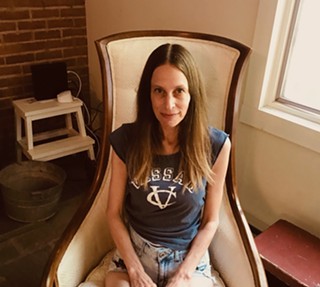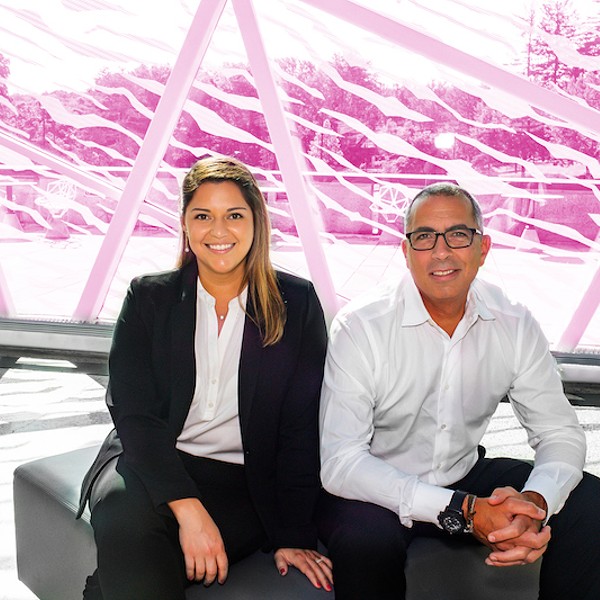Nearly every Tuesday since the fall of 1976, Jane Brody has been doling out 1,100 words of health wisdom to New York Times readers. As the writer of the paper’s nationally syndicated Personal Health column and the author of several books, Brody has spoken to the masses about everything from the importance of exercise to how to pack a schoolchild’s lunch. But she wasn’t quite aware of her reach until she started writing in early 2010 about the death of her husband, Richard Engquist, from stage four lung cancer only six weeks after his diagnosis. Then it seems the floodgates opened, blog comments and e-mails poured in, and it felt like the whole world was wrapping its arms around her in comfort.
When I meet the woman dubbed by Time magazine the High Priestess of Health, she is petite and fit at 69 in a black sheath dress. Fresh from a swim, Brody welcomes me onto the screened porch of her Woodstock country outpost for an afternoon of spirited conversion occasionally interrupted—to Brody’s delight—by a chorus of bullfrogs. Outspoken about everything from her fiercely pro-immigrant stance to her passion for gardening, Brody is full of life. Yet the specter of death has been on her mind since her mother’s untimely demise in 1958—and her latest book, Jane Brody’s Guide to the Great Beyond: A Practical Primer to Help You and Your Loved Ones Prepare Medically, Legally, and Emotionally for the End of Life, is the culmination of decades of thought on the subject. As with every other topic that she tackles, Brody meets life’s most difficult milestone head on, with her signature blend of New York candor and roll-up-your-sleeves intellectual rigor.
You recently had the experience of sharing the story of your husband’s decline and death from cancer with millions of New York Times readers. What was that like?
It was very therapeutic. My husband was still alive when I wrote the original piece. I didn’t even know whether my editor would sit still for running it; I just had to write it. The response from my readers was mind-blowing. Several hundred people wrote comments. People who didn’t know him at all, the kinds of things they said were so touching and sweet and supportive. In a way I felt sorry for people who didn’t have this avenue under similar circumstances. It was so meaningful. I was very glad that I wrote those columns.
You had only recently published Jane Brody’s Guide to the Great Beyond.
I had no idea that I would be putting the book’s principles into practice in my own life so soon. More people need to realize that death is a part of life. One of my standing jokes with my husband was “No one gets through this life alive.” But we live in such a death-denying society. In the old days and in traditional societies people died at home and everybody was there, everybody saw it. We have shielded our young people from death. With half or more people dying outside the home, the exposure has been so reduced that people can just put it out of their minds and say, “This doesn’t happen.”
We think that with all these so-called miracles of modern medicine we can somehow cheat death indefinitely. Well, you can cheat it for a while, perhaps, but not indefinitely. Show me one immortal person and I’ll show you a fiction.
In Woodstock you’re surrounded by alternative medicine and healers. What do you think of that?
Every therapy has to be subjected to controlled trials, and until that happens I’m not willing to endorse anything. If it’s not invasive, if it can’t hurt you, and if it helps you, then, terrific—as long as you know what your diagnosis is. People who go directly to alternative medicine without finding out what’s really wrong with them, that can be dangerous. Acupuncture has been shown to relieve pain. But you don’t want a person who has cancer, whose pain is being caused by cancer that has not been diagnosed, going for acupuncture to relieve the pain. It doesn’t make any sense.
Where do you stand on the health care debate?
The fix that Obama could get through Congress is not anywhere near enough of a fix. It still preserves all of the vested interests. We haven’t gotten rid of the middleman in the drug benefits. Medicare still cannot negotiate on its own for drug prices. The health care reform that we have is a start; it is by no means a finish. But we had to start somewhere. There’s a political reality that says let’s get something through. It will soon be obvious what the problems are, and they will have to be fixed.
Over 34 years, how has your column changed?
It’s always been about personal health, but in the beginning there was no such thing as personal touches in the columns. It wasn’t the Times style. About 15 years into the column, I started writing occasionally about things that happened in my own life. People responded to those things so well that it gave me license to do more of that. Readers want to know: Do I just write this stuff or do I live this way? People can be very up front about that. I might be, let’s say, on a buffet line taking my food, and somebody behind me would say “You eat that?” And I would say, “I beg your pardon? Why wouldn’t I?” And they would say, “That’s got a lot of calories.” And I’d say, “Well, if you’d done what I did today, then you could eat it too! I exercised, I earned this.” I have a freezer full of ice cream, but I have only half a cup a day. I made it an unwritten rule that if I started eating more than that, I couldn’t have it in the house. I don’t believe in fanaticism, I believe in moderation. That’s been my catchword from the beginning. Life is too short to cut everything out of it that you love.


















